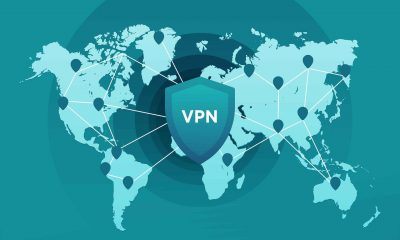In this article, we will discuss how the ISP is able to track user location and its data traffic. We will also shed light on how and why to avoid ISP tracking. An Internet Service Provider is a company or individual providing you with the internet connection. At our homes, this is a local business. In the office or university, for the person using the internet, the ISP is the organization. The job of an ISP is to act as a bridge for user’s to be able to connect and browse the internet at will. In a network connection, whenever you wish to access a website, you enter the URL in the address bar of the browser. When you hit enter, your device creates a packet of data. It contains your IP address and the address of the website you want to visit. This bundle is first sent to the ISP servers and then forwarded to the website in question. Since the ISP is the first to receive your IP address as well as that of the website you want to view, they are able to keep track of the whole activity. For those of you who don’t know, an IP address is a string of numbers that act as a location beacon. A simple way to understand an IP address is to think of it as your home address only that it for your digital device. Every person in the world who is using an internet connection has an ISP. These companies are able to tell which user at what location is visiting which website and when. They keep logs of everything and can use this data at will. Sometimes the ISP is even able to track how much time is spent on each website and what information was entered on it. We’re sure you are beginning to get an idea about the consequences of ISP tracking. In June of 2018, the United States Federal Communication Commission passed a law that brought net neutrality to an end. This meant that ISPs were given the ability to regulate the internet at will. Other countries soon followed suit and now the internet runs on laws of the jungle under local ISPs. The Internet Service Providers are bound to share every bit of information with the authorities on demand. Unfortunately, these companies do a lot more than that. The data logs that they create are often sold to third parties who use the information for customer profiling. The heaps of marketing spam that you receive from mailing lists are all a result of data obtained from ISPs. This is just the tip of the iceberg. ISPs don’t verify who they are selling the data too, which means that a cybercriminal can easily end up buying a large tranche of sensitive information about hundreds of people. If you are someone who loses their sleep over the prospect of an invasion of digital privacy, you will be worried. Happily, though, there are effective solutions available to bypass ISP tracking completely. One of the most reliable is the VPN. What is a VPN you may ask? Well, a Virtual Private Network is a program that re-routes normal data traffic making it go through a secure server before reaching the ISP. Through this process, the user’s original IP address is hidden behind a fake one that is assigned by the VPNs secure server. Now, the IP address that the ISP will receive leads them back to a server which is anonymous. This makes it impossible for them to tell where it is located and even which websites are being visited. A VPN takes care of ISP tracking in a simple yet effective manner. Before installing a VPN, there is one vital thing to consider and that is the reliability of the service. Only a handful of programs in the market offer the reliability that a VPN should. The decision of picking the right VPN can be easily made by going through a few internet sources and customer reviews. Independent reviewers also post about different services for users to benefit from their analysis. You may also like: How to Hide Your Photos on Facebook & Set Photos Privacy ISP tracking a huge nuisance but with a VPN, you can find your way around it quite comfortably. The only thing to be sure about is to use a trustworthy service. Ivacy is one of the programs which offer military-grade encryption protocols along with a strict zero log policy so that users can browse the internet with complete peace of mind and the best in digital safety. Author Bio: Scott O’Connor is a cyber-security professional. He’s been writing in the internet privacy niche for a while now and has churned variety of informational pieces to educate his audience.












